The Legon Centre for Education Research and Policy (LECERP), in collaboration with the Resilience African Network at Makerere University, has officially launched the African Regional Education Systems Resilience Observatory (ARESRO) Project. Funded by the International Development Research Centre (IDRC) under the GPE-KIX programme, the initiative seeks to strengthen the resilience of education systems across Africa through rigorous research, innovation and policy engagement.
The official launch of the Anglophone West Africa Hub of the ARESRO Project, held at the Smart classroom of the School of Continuing and Distance Education (SCDE), signified a major step forward in promoting inclusive and adaptive education systems across the region.
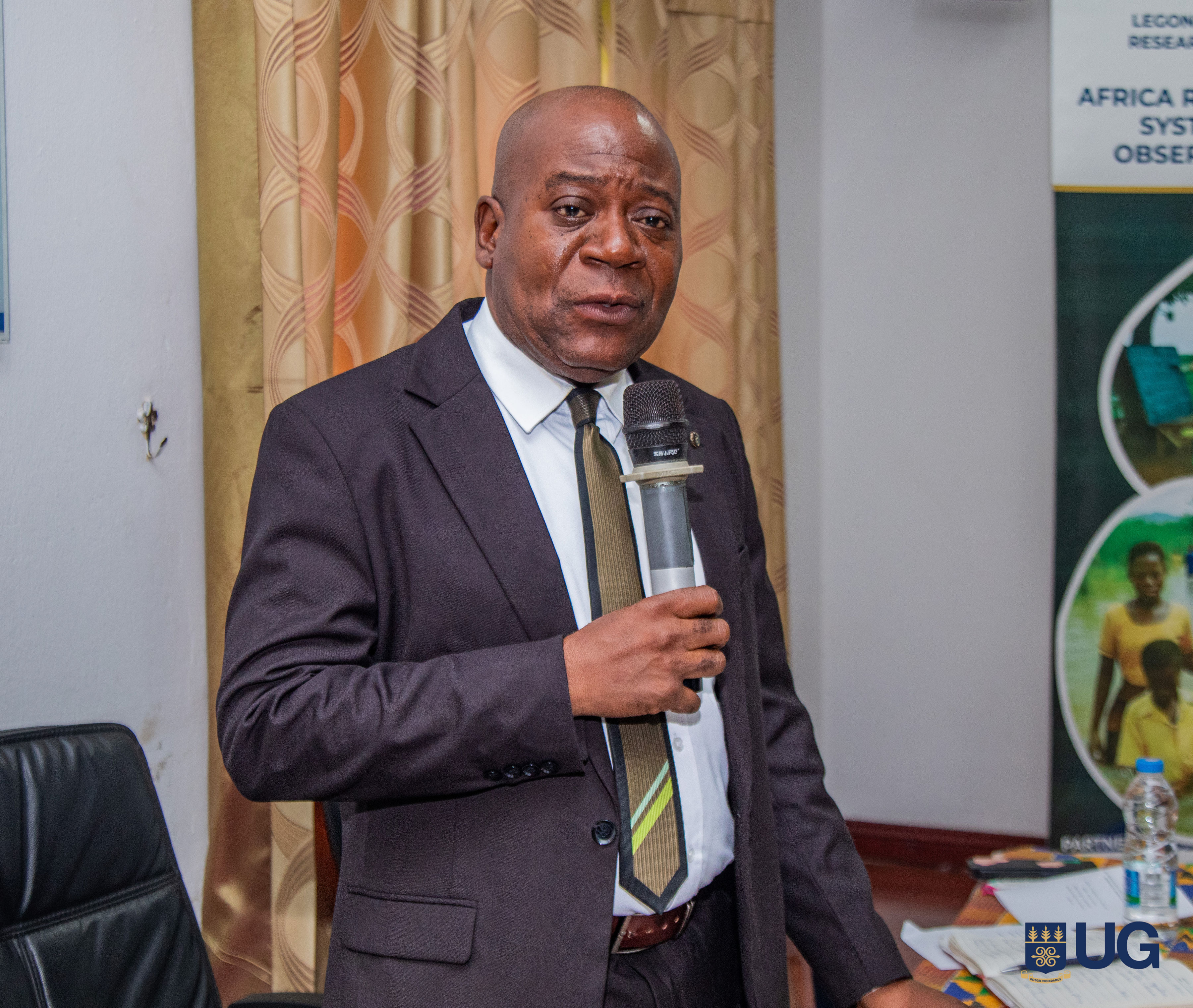
Professor Samuel Nii Ardey Codjoe, Provost of the College of Education
Chairing the launch, Professor Samuel Nii Ardey Codjoe, Provost of the College of Education, underscored the pressing need for education systems that can withstand external shocks such as climate change, pandemics and conflict. He highlighted the importance of collaborative research, cross-sectoral partnerships and data-informed strategies in ensuring learning continuity across West Africa.
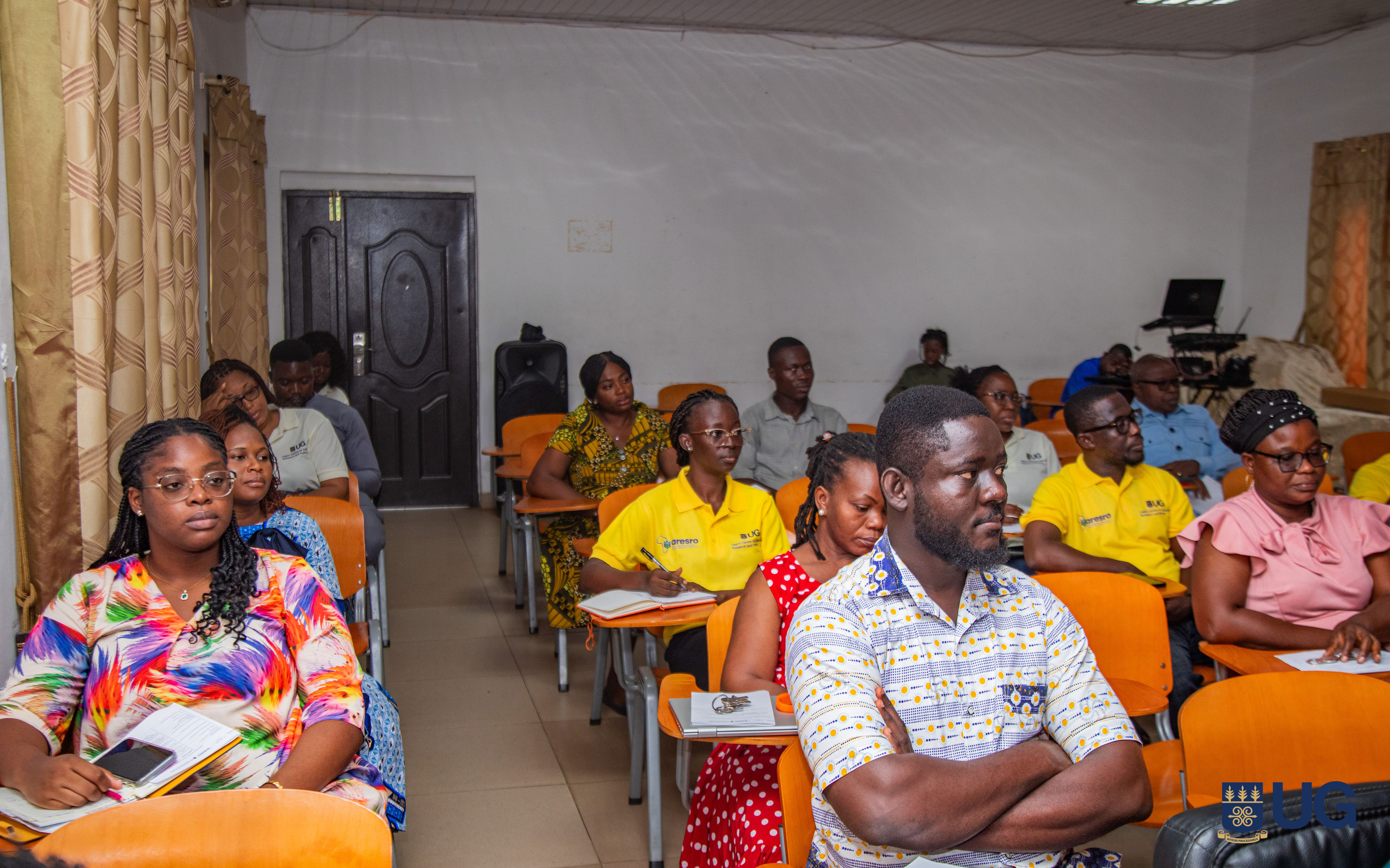
A cross-section of attendees
“Resilience is fundamentally about inclusion,” he stated. “It means ensuring that the most vulnerable, whether in conflict zones, disaster-prone regions and underserved communities, retain access to quality education. We must embrace blended learning and digital tools, ensuring that no child is left behind.”
Professor Codjoe further commended LECERP for being selected to lead the initiative across five West African countries, noting the projects alignment with priority two and four of the University’s strategic plan, which focus on impactful research, as well as engagement and partnerships, respectively.
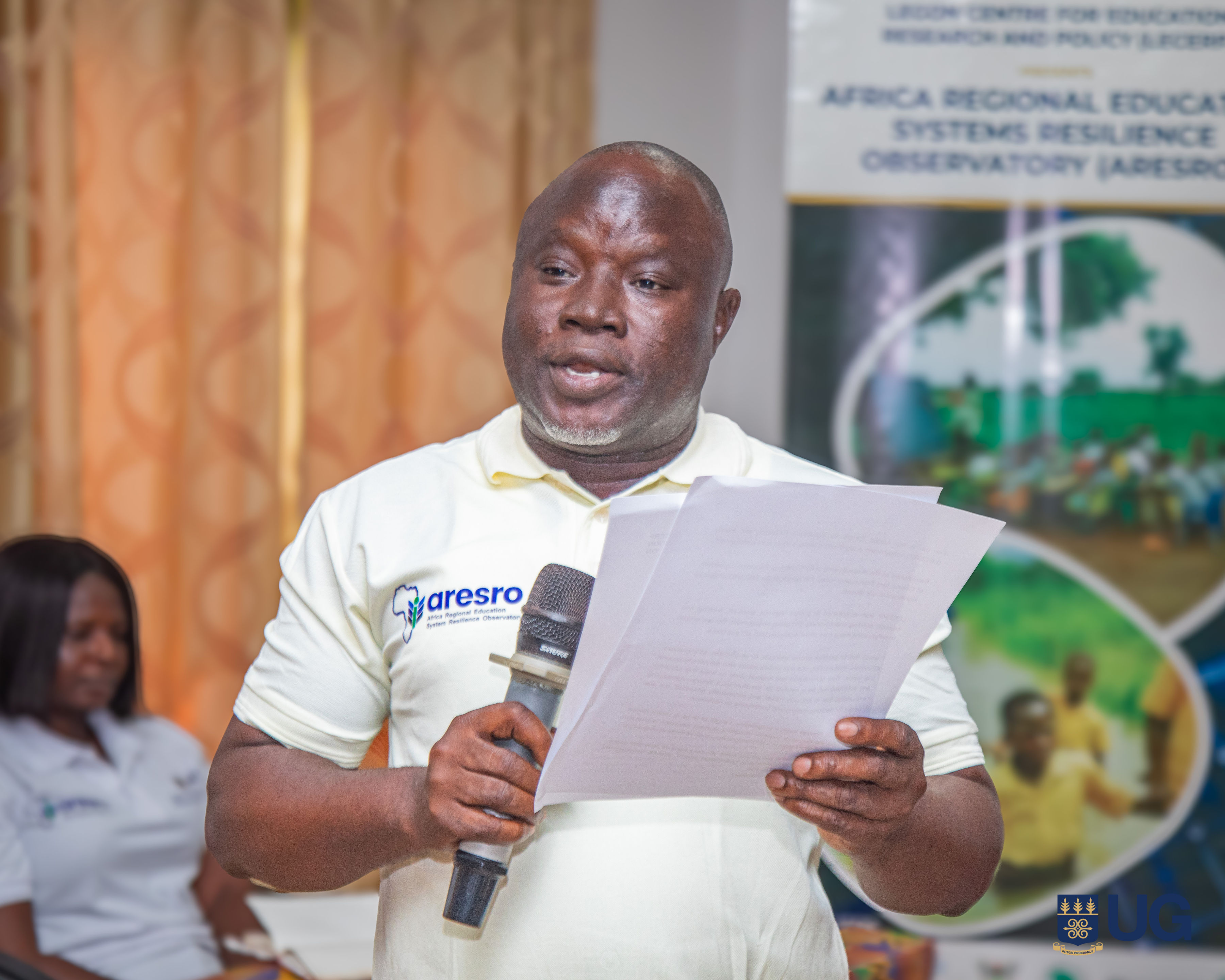
Dr. Clement Adamba, Director of LECERP
Dr. Clement Adamba, Director of LECERP, officially welcomed participants and reiterated the significance of the project in shaping education policy and practice across the continent. He explained the strong collaborative ties between LECERP, Makerere University’s Resilient Africa Network and other regional and international partners. “This initiative will serve as a hub for research, innovation, policy dialogue and data-driven responses to strengthen education systems in Africa,” Dr. Adamba noted.
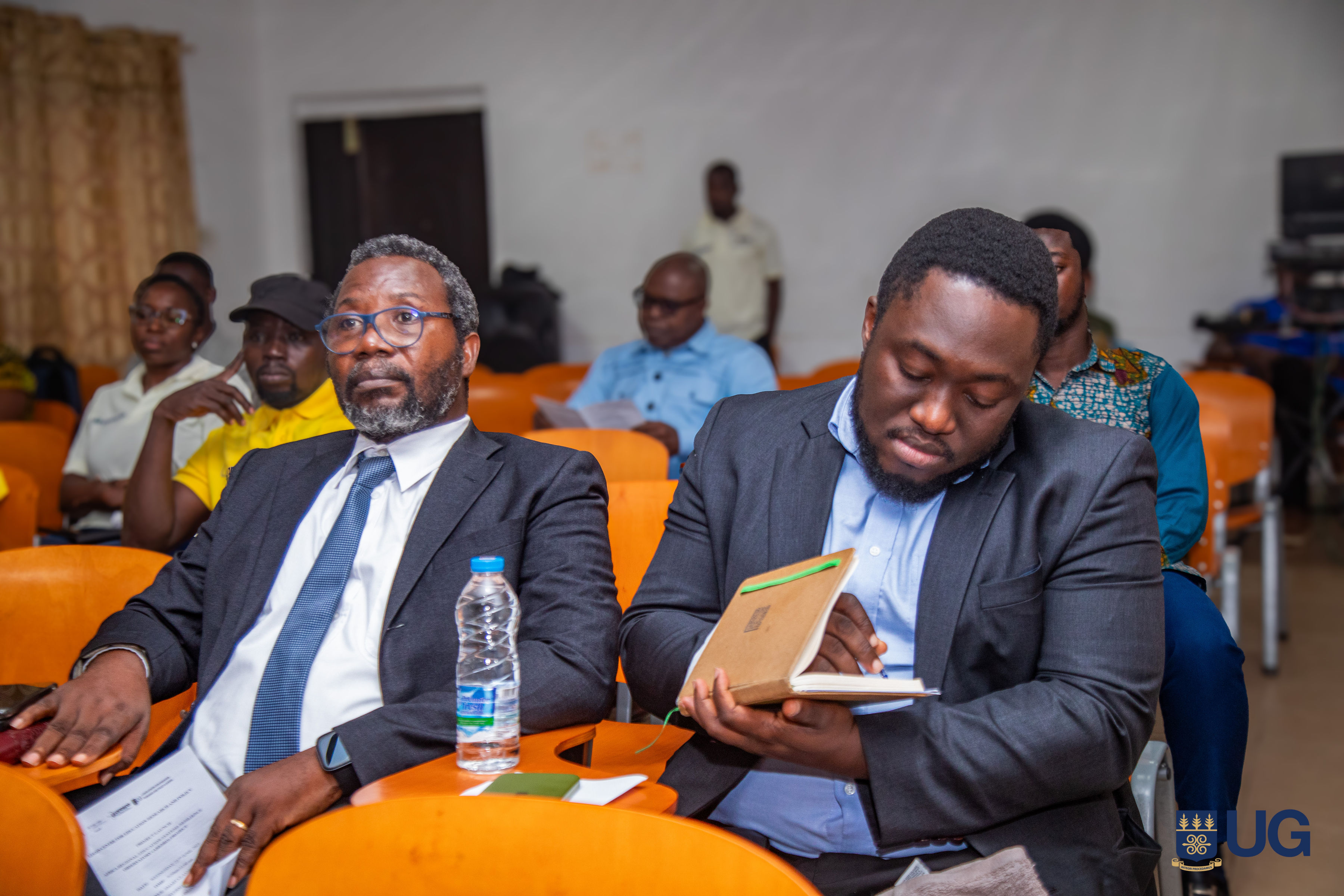
A cross-section of attendees
He further explained that the project focuses on education from early childhood through to secondary levels across five West African countries. Over the next three years, it aims to develop a unified framework for educational resilience, deepen understanding of key resilience factors and improve preparedness for future disruptions.
Reflecting on lessons from the COVID-19 pandemic, Dr. Adamba remarked, “the pandemic was a wake-up call. Schools across Africa were shut for extended periods, exposing our lack of preparedness. This project seeks to ensure we are better equipped for future crises.”
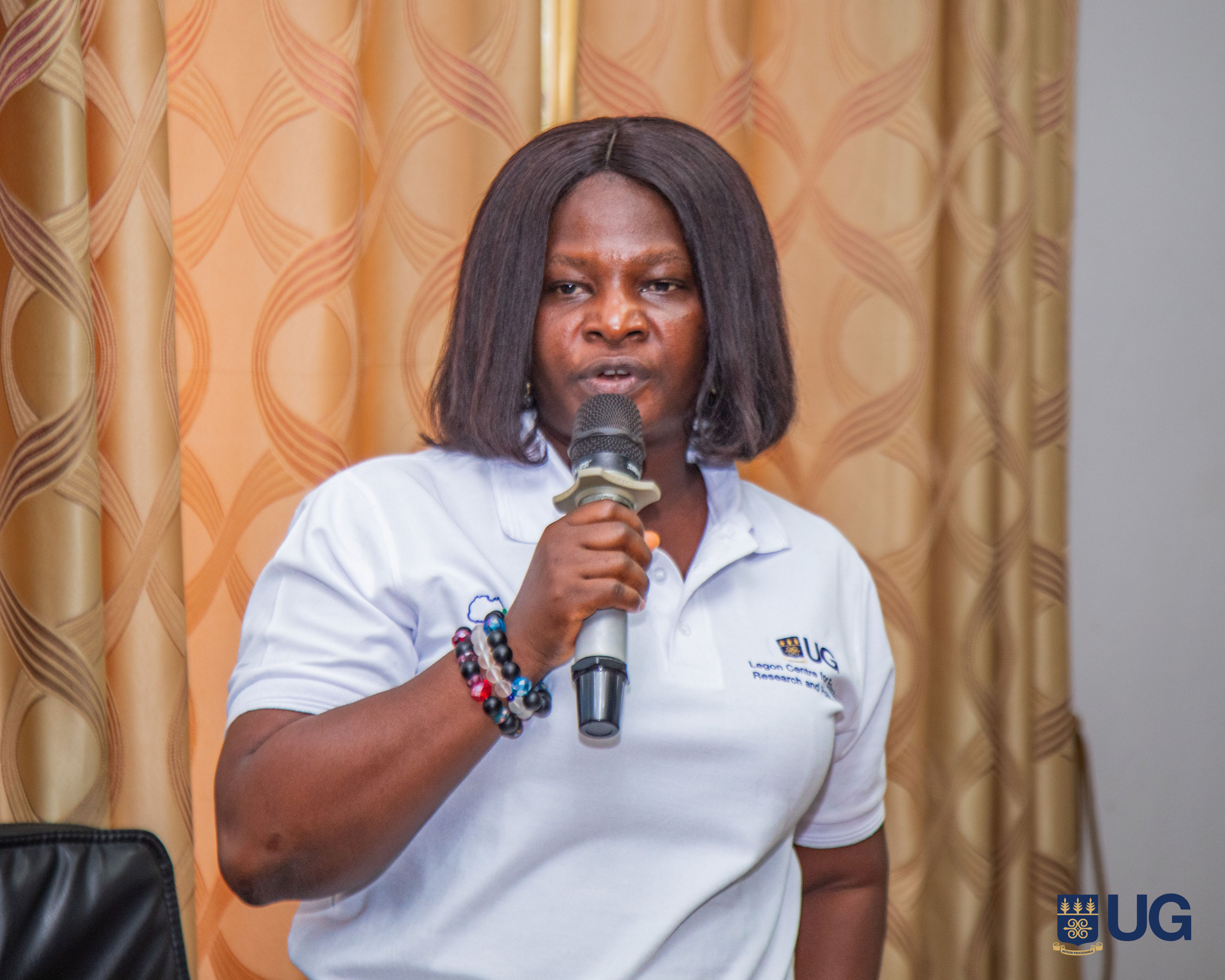
Madam Bernice Mpere-Gyeke, Chairperson of the ARESRO Advisory Board
Speaking at the event, Madam Bernice Mpere-Gyeke, Chairperson of the ARESRO Advisory Board, highlighted persistent structural challenges within Ghana’s education sector. While acknowledging the country’s strong policy framework, she pointed to significant implementation gaps, largely due to resource limitations. “With this project, we hope to address these gaps and collectively strengthen our education system,” she said.
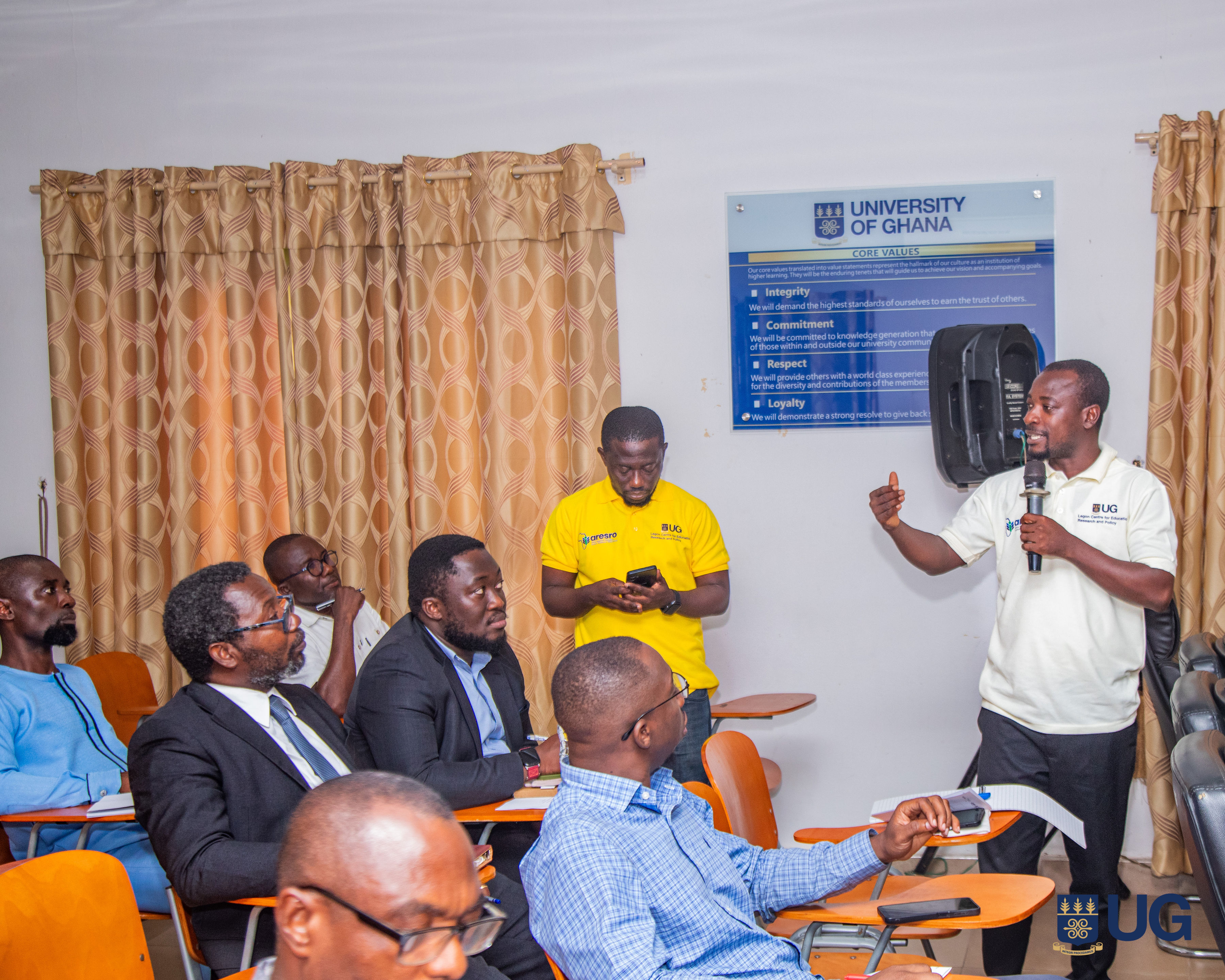
Dr. Innocent Agbelie delivering a presentation during the launch
Dr. Innocent Agbelie, a Research Fellow at LECERP, presented preliminary findings from a multi-country review on education system resilience, with a focus on Ghana. The study, which analysed academic and grey literature from 2010 to 2025 using thematic analysis, revealed varying interpretations of resilience across local, national and international levels.
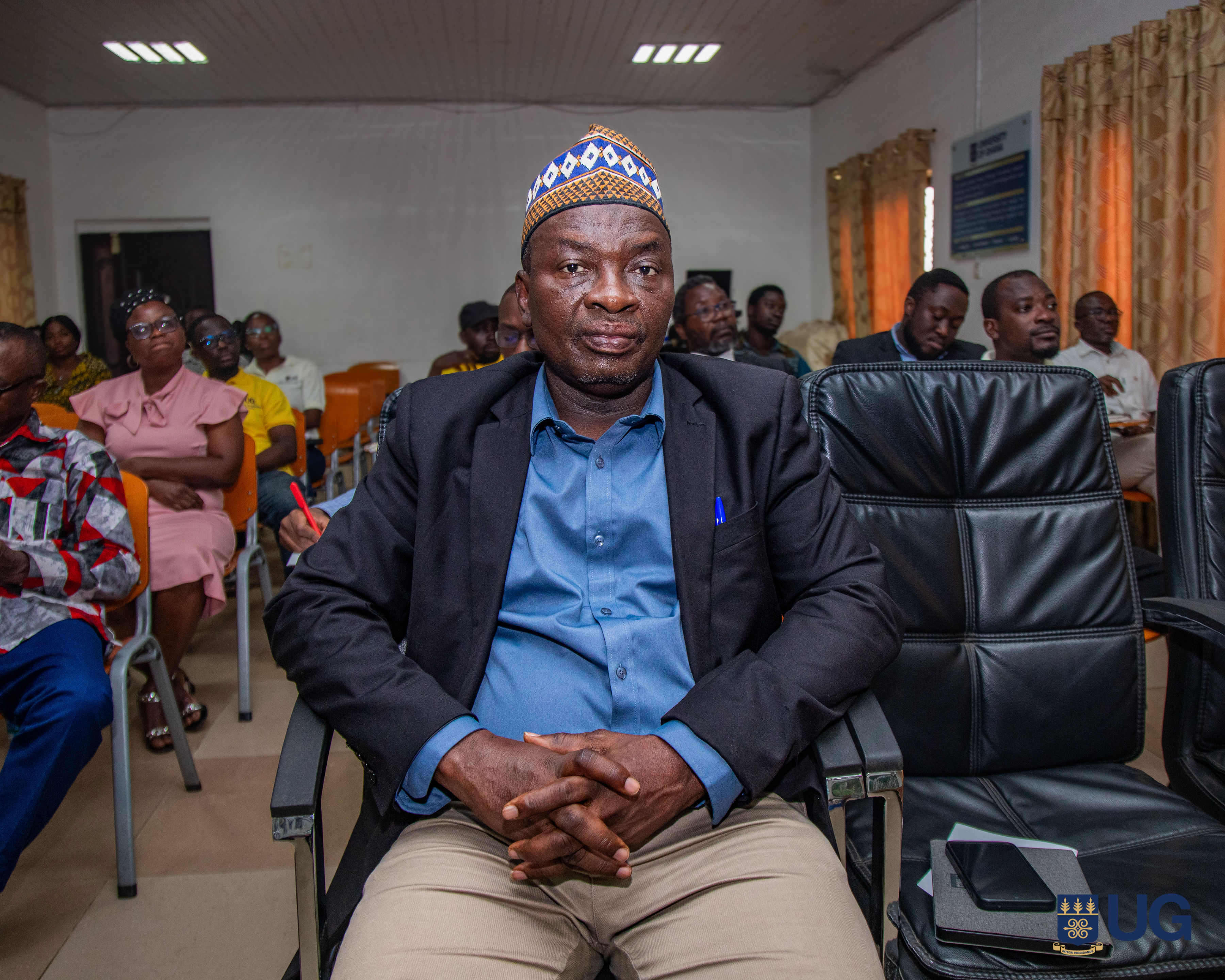
A cross-section of attendees
The review identified several stressors, including child labour, inadequate infrastructure, funding shortfalls, and the enduring impact of COVID-19. While adaptation strategies such as remote learning and teacher training have been employed, major challenges remain, particularly in addressing inequality, digital divides, and policy execution gaps.
“The final report will synthesise findings from all five countries and be shared with key stakeholders to guide policy and strategy,” Dr. Agbelie stated. “This work will help us better predict future shocks and understand their likely impacts.”
A short video presentation showcased the collaborative work between LECERP, Makerere University, and the Resilient Africa Network. This was followed by a Q&A session where participants engaged with the project team, offering suggestions and posing questions on future directions.
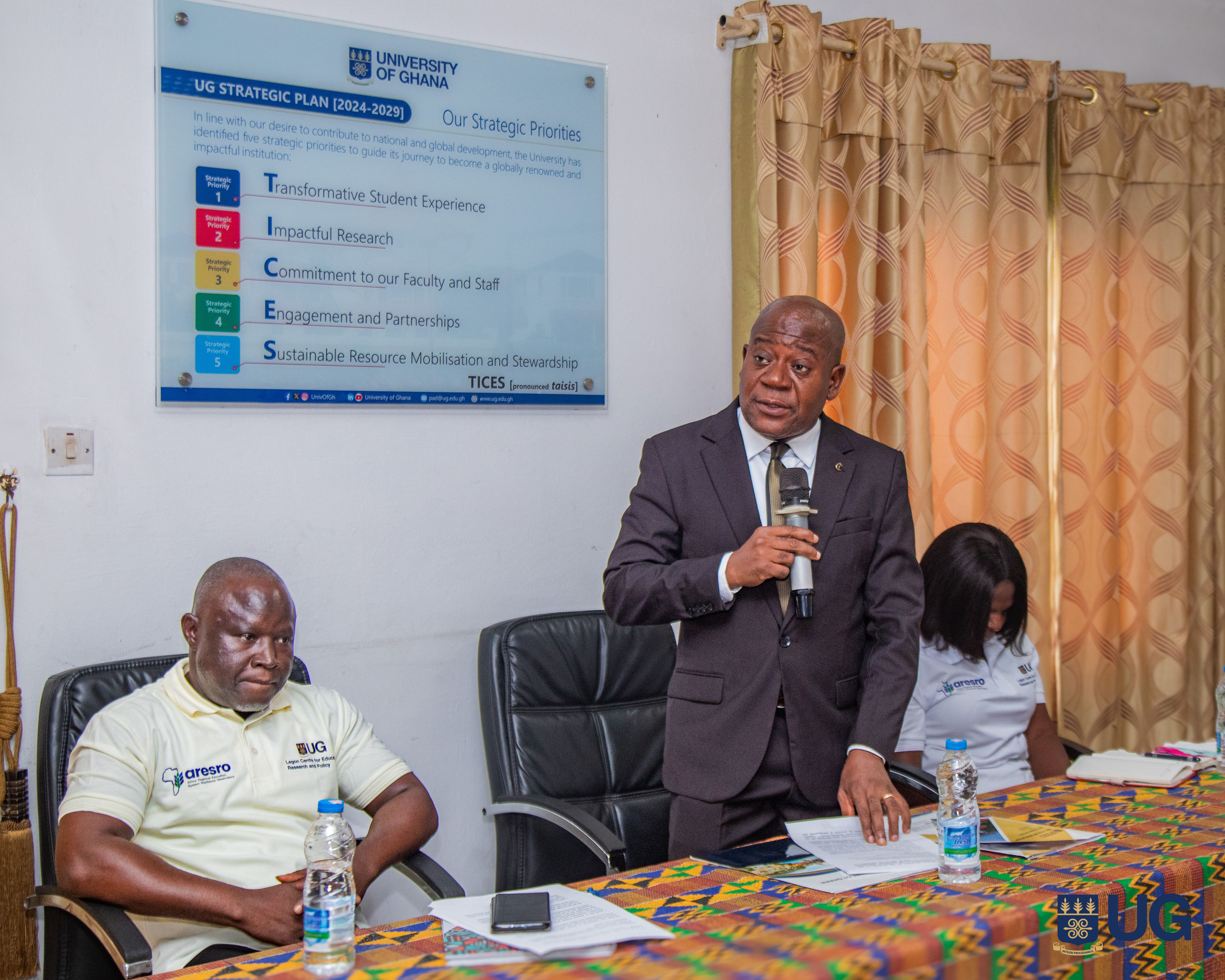
In his closing remarks, Professor Codjoe reaffirmed his commitment to LECERP’s continued success and called for greater integration of climate science into education planning, particularly concerning flood risks and extreme heat. He also encouraged LECERP to take a leading role in Ghana’s national climate research efforts, linking the initiative to the Mastercard Foundation’s $27 million climate research fund.
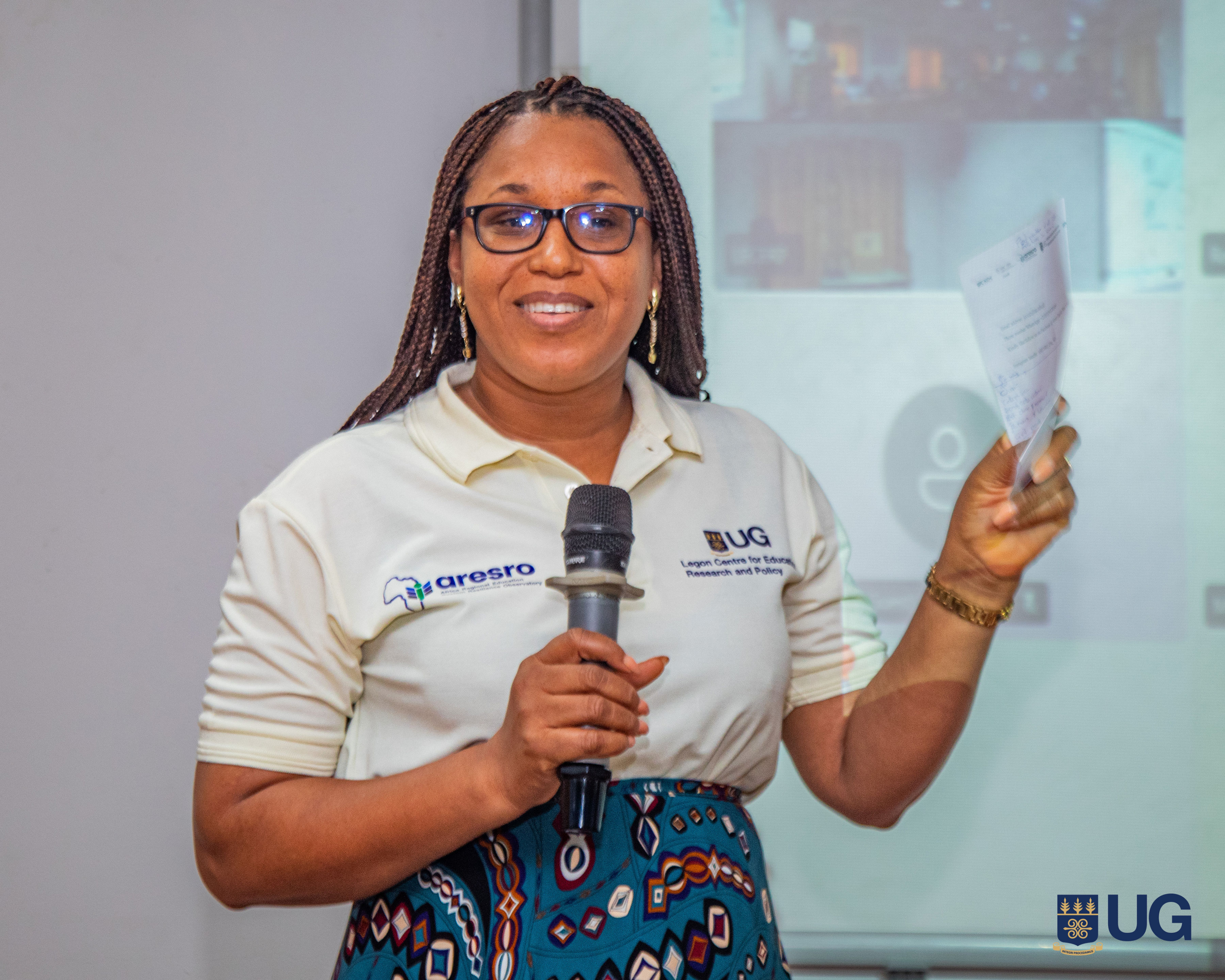
Dr. Joyce Anku delivering the vote of thanks
Dr. Joyce Anku, Lecturer in the Department of Teacher Education, delivered the vote of thanks, expressing appreciation to all stakeholders, including the University leadership, international partners, civil society organisations, the media and the event organisers.
